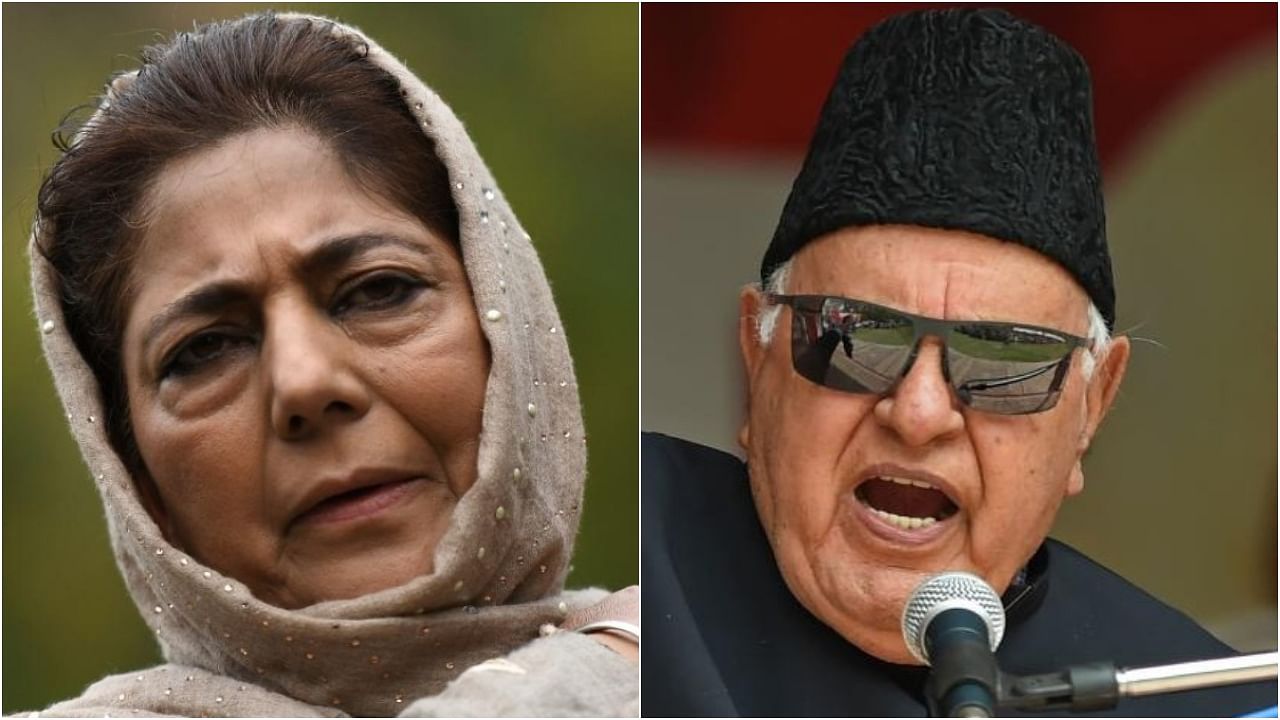
To counter the BJP juggernaut, People’s Alliance for Gupkar Declaration (PAGD), an amalgam of political parties, announced that they would contest the Assembly polls in Jammu and Kashmir together.
Though the much-awaited Assembly elections are nowhere in sight, National Conference (NC) president Farooq Abdullah, who heads the PAGD, on Monday, said that the alliance will contest the elections in unison as and when they are held. His views were echoed by PDP president and former chief minister Mehbooba Mufti.
The NC and the PDP are the main constituents of the PAGD, an electoral alliance which came into existence in 2020 to restore the special status of the erstwhile state. The alliance contested the maiden District Development Council (DDC) elections held in November-December 2020 together and emerged victorious in 110 seats, while the BJP emerged as the single largest party by getting 74 seats.
Javeed Trali, a political analyst, says that for the archrivals – the NC and the PDP – coming together to contest the Assembly polls is a compulsion. “The recent toppling of Shiv-Sena led government in Maharashtra is a clear signal to political parties across the country that it is not easy to stop the BJP even in alliance,” he said.
Trali, who heads the J&K Policy Institute, a Srinagar-based think-tank, believed that it will be difficult for the NC and the PDP to defeat the BJP even if they contest the polls together. “There are inherent contradictions which could play spoilsport for the PAGD. On the other hand, the BJP is spreading its footprints beyond the Hindu majority areas of Jammu and are making foray into Kashmir through its proxies,” he observed.
A senior NC leader wishing anonymity said that the consensus eludes among the party leadership over contesting the Assembly polls in alliance with the PDP.
“As was observed during the DDC elections in 2020, it is very difficult for party workers to campaign for those who, not long ago, were our bitter rivals. The top leadership of the NC may have decided to contest polls together, but it may not be acceptable to a section of party leaders,” he said.
If the Gupkar alliance doesn’t work on ground, the BJP has the potential to sweep the polls in Jammu region, including its Muslim areas, where the saffron party has already consolidated the Hindu vote. In such a scenario, the BJP’s dream of a Hindu chief minister in the Muslim majority UT can turn into a reality.
J&K has been under Central rule since June 19, 2018, following the collapse of a coalition government headed by Mehbooba Mufti after the pullout of its partner BJP.